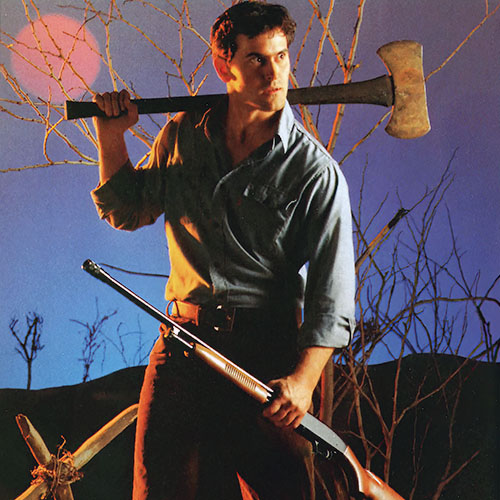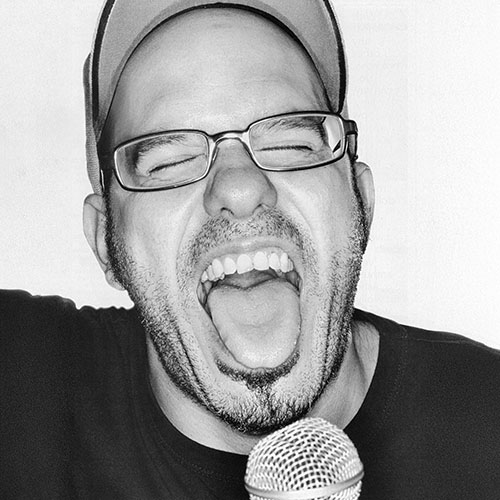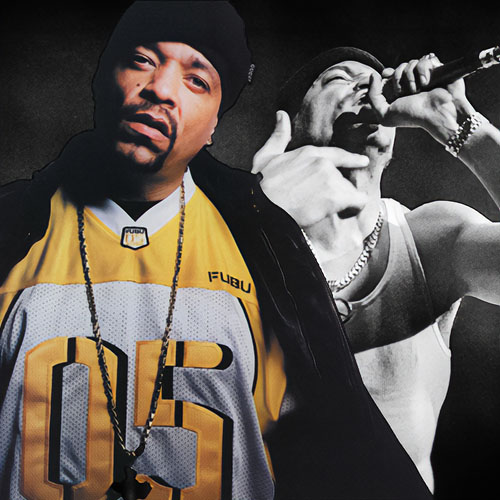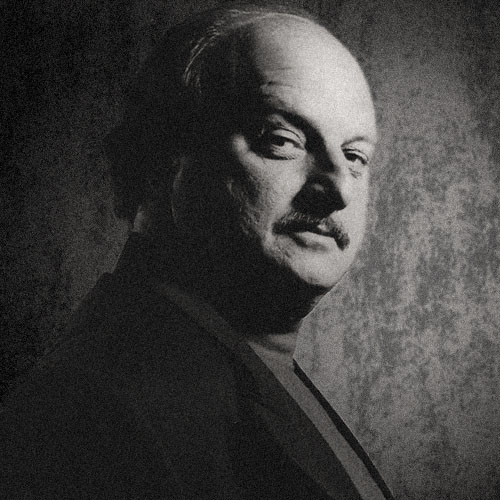“I think there’s a built-in resentment to actors’ speaking out on issues. Being an actor isn’t synonymous with giving up citizenship papers. I think I have the right to speak out.”
Robert Redford, The Humble Icon
The actress Jane Alexander was talking recently of how actors can be transformed by makeup. “Except Robert Redford,” she said. “He’s unique. No matter what you did to him, even if you threw a bag over his head, you would know it was Bob.”
Redford is certainly unusual, if not unique. He is a polite man who enjoys the company of friends and meeting new people, but he has one of the lowest “bullshit thresholds” in the entertainment world and is easily capable of telling an obnoxious fan to “go fuck off.”
At 43 he is one of the world’s most attractive and charismatic actors, but he reached that position only after a bored youthful period in which he stole hubcaps and “broke into rich folks’ houses for the hell of it.” He admits he probably would have ended badly had it not been for his marriage to a woman who willingly shared his early poverty and who straightened him up, dusted him off, and sent him out to achieve his destiny in a profession he had never even considered until he was almost 23.
Redford’s Anglo good looks, which are only enhanced by a disfigured right jaw, are dominated by blue eyes that can change expression so fast that a director need never worry about people getting bored with a Redford close-up.
Unlike Brando or Lee Marvin or others of the barely-suppressed-violence school, Redford doesn’t fill the audience with fear that he will explode and wreck the place, though he’s a very physical man and is capable of it. Instead, his eyes widen in disbelief, narrow to slits, stare hard, then signal a smile — and just when you think you’re safe, you find he’s giving you the cynical stare again.
Since 1969, when Butch Cassidy and the Sundance Kid made him what Hollywood calls a “bankable star,” Redford’s career has gone steadily up. His two biggest hits, The Way We Were, in which he played opposite Barbra Streisand, and The Sting, with Paul Newman, pushed his per-picture salary over the $1 million mark. For his role as the Georgia prison warden in Brubaker, he received the sum of $3 million.
But Redford is a hard business head, and he reaches out beyond acting. He began directing last year with Ordinary People, starring Mary Tyler Moore and Donald Sutherland. He picked the story, based on Judith Guest’s novel about tragedy striking an upper-middle-class family, because it reminded him of his own growing up in Van Nuys, Calif. He was born in Santa Monica on August 18, 1937, to Charles and Martha Redford. He found the fifties a spiritual wasteland. Too late for the dramas of the depression era and World War II, the children of the fifties, says Redford, had no way to identify.
“We didn’t project anything of our own, unlike the sixties generation. It was maddening, and I wanted out.” Though he was good in athletics, winning a baseball scholarship to the University of Colorado, he soon dropped out and headed for Europe, where he spent several months trying to become a painter while flirting with starvation.
He returned to California in 1958, depressed about himself. There he met and married Lola von Wagenen. With her encouragement they moved to New York, where his interests shifted from painting to set designing. Then, on the advice of his instructor, he enrolled in the American Academy of Dramatic Arts. Discovering acting was, he says, “like an explosion.” An agent spotted him, and in 1960 he had a walk-on part in Tall Story, a Broadway play about a basketball player. There followed other parts in The Highest Tree and Little Moon of Alban and starring roles in Sunday in New York and Barefoot in the Park.
He went back to Hollywood to make his first film in 1962, a low-budget melodrama called War Hunt. No one noticed. Then came This Property Is Condemned and Inside Daisy Clover, both with his friend Natalie Wood, and The Chase, which brought him wide recognition. But it wasn’t until 1969, when he and Paul Newman struck sparks as Butch Cassidy and the Sundance Kid, that Redford became famous. There followed a string of star vehicles. They included The Great Waldo Pepper, about barnstorming pilots of the 1920s, comedies such as Hot Rock, in which he led an unlikely gang of jewel thieves, and a Western with a social message, Jeremiah Johnson — which remains his favorite role.
For the most part Redford has played troubled loners with a Don’t-Tread-On-Me look in their eyes. Since he has been able to call his own shots, there has not been much in the way of overt sex in his films. In Electric Horseman he barely touches Jane Fonda, and in Brubaker his relationship with Jane Alexander is entirely platonic. It may reflect Redford’s personal attitude of being a “one-woman man.”
Also, he obviously feels there are more important subjects for the movies. He once commented that people who didn’t find sex and enjoy it in their teens and twenties have only themselves to blame. “I get bored with forty-year-old swingers who have just discovered sex and want to tell me, or show me, all about it.”
His maverick personality has taken him in the direction of social activism. People still think of him as young Senator McKay, a part he played in The Candidate. In real life he has served on the board of the National Resources Defense Council and the Environmental Defense Fund. He produced a short movie called The Solar Film, which is a plea for solar energy. He wrote a historical-ecological book called The Outlaw Trail, recounting his three-week horseback journey across the West. His Utah retreat, Sundance, which he built with the help of his wife and a Hopi Indian, is located near Provo. He and Lola and their three children (Shauna, Jamie, and Amy) divide their time between Sundance and a spacious Fifth Avenue apartment in New York.
In line with his preference for privacy, Redford has rarely granted interviews in recent years. He does, however, occasionally make appearances at colleges and other select forums. Penthouse contributors Jeffrey Wells and Dan Yakir recently caught up with him on such an occasion at Yale. Redford agreed to speak before an invited group of listeners during a time when he was appearing as a Chubb Fellow at the college. Various reporters and students asked him questions, among whom were Wells and Yakir. Although the questions were posed by several persons, for ready reference in the dialogue below, we have looped them all together as one. All of the answers were, in fact, given by Mr. Redford.
Why did you decide to direct Ordinary People?
Redford: Well, since I’ve always had a sociological-political interest in the country, I was interested in the family unit and what’s happening to it — the changing mores in this country. That seemed to me a good subject. I liked the book because it dealt with feelings and behavior, which are two things that have interested me most as an actor. And it also had something I had felt about my own upbringing — the camouflage of feelings, the inability of people to get in touch with themselves. The film is about young people, kids like my own, who are struggling to be who they are, to be heard, to be understood.
I had real problems with that when I was younger. I had good parents — they were perfectly fine — but I just heard different sounds, I guess, and that bothered people. As a result, I didn’t feel I was being heard, which made me doubt my own sanity. And Ordinary People, to me, was clearly a highly dramatized version of that same thing. And it touches so many elements at the same time. It’s not just about this Holden Caulfield-type character but about his mother and father and their relationship. So that’s why I went after it.
But why choose such a personal subject? Why not make the kind of film the public is used to seeing you in?
Redford: At first, I felt that the easiest thing to do, directing for the first time, would be something that involved action. Because I’m a person of physical action — I like it, and I’m good at it. Or something that would have involved a lot of personality, and maybe be in it myself to serve myself as an actor. But that wasn’t the way it was. I decided that if I was going to do this, then I wanted it to be hard. There would be no purpose in it if I couldn’t really test myself. That was it, really. But I had a lot of arrogance about my ability to do certain things, about my working with actors, catching their off-center moments.
Did you have the technical experience necessary to direct a film?
Redford: At first, I had no idea how it was going to go technically. I assumed it wouldn’t go well at all, because I had always resisted the technical jargon, the technical knowledge of filmmaking. I’d always assumed it had nothing to do with my craft as an actor. But what I hadn’t counted on was the thrill and excitement of directing.
Since I had started out my life as an artist, a painter, I felt I was totally unprepared for the role of film director. But I found out I had very strong images — as I have always had in my mind — about what something should look like. And I was able to sketch them and give that to the camera-man to translate into film. I couldn’t always be as accurate as I wanted to, but it came close. I found that I was able to do things that I’d assumed I couldn’t do. I’m still not that good at the technical language of film, but I can see it.
Did your experience as an actor help you in your directing?
Redford: Over the years, working on Jeremiah Johnson with Sydney Pollack, watching George Roy Hill on The Sting, Michael Ritchie in The Candidate, Downhill Racer — a lot of knowledge seeped in. I had produced, taken part in rewrites, developed ideas. So I wasn’t a complete stranger to the process. But I didn’t want to borrow somebody else’s vision. I wanted to take my own point of view and let the style dictate itself. I never had any school training in film — it wasn’t available when I was starting out. But that might have been lucky, because I had to find my own way. I’ve always done that. I’ve always broken the rules. You begin by breaking rules. But now I’ve moved through that, and I’ve come to respect form a little more. Now I’m more interested in cutting away the fat and making simple, lean films.
One of the strongest influences in my life, as an artist, was those comprehensive exams that you take when you’re young. The thing that got to me was that page that said, “What’s wrong with this picture?” It seemed to be perfect. And you strained and looked and looked and finally said, “I got it! This woman has only one sock on!” And for that I got to go home early from school. I think that had a lot of bearing on the way I looked at making the film. On what was right, what was missing.
You weren’t nervous when you first walked on the set?
Redford: Well, I remember saying to myself, “What am I going to feel like? Will it be like the first time I went on stage? Opening night? Am I going to feel the way I did when I first acted in a film? What about nerves and excitement and all that?” Anyway, the first night I walked on the set and suddenly saw all those trucks and generators I panicked. I absolutely panicked! I thought, “My God! All this is for me! And they’re going to expect me to know what I’m doing!” I saw the arc lights, and I saw the actors standing around, and I suddenly felt their approval. And I was thinking, “Gee, this is really something! This is for me!” It was a little sweaty, but once we started shooting, it was fine. But now my first shot has been cut.
How come?
Redford: It was boring!
How does it feel to see yourself on the screen?
Redford: Awful. I can’t stand it. As a result, there are some of my films that I haven’t seen to this day. It just has no value to me whatsoever. The hardest thing to do is produce a film that you’re in. You have to look at the dailies in the editing room and see yourself.
In the last couple of years, I’ve become more and more interested in going back to the stage, even though in the end I’d be more satisfied with film as a complete process. But I miss the stage, the feeling of being in front of an audience, of testing your acting ability. I’m most excited by regional theater — Yale Rep or Long Wharf — and not so much by Broadway.
You seem to get tired of acting every few years. You walked away from movies twice during the 1960s and then again a few years ago. What happened?
Redford: Well, after All the President’s Men, I was really tapped out. I had worked so hard on it that I had no feeling left. When it came out and was successful, I couldn’t enjoy it. Not that I’ve ever enjoyed any success, really, but that’s another thing. But I was having problems. I kept seeing people coming up and congratulating me, wearing expressions that I thought I should have. And I thought, “Well, I’m in trouble here. Real trouble. And I’m gonna stop.”
What’s the matter with success?
Redford: The thing is, I never set out to be a star. A lot of what happened to me came about by accident. I mean, Butch Cassidy started something. The Way We Were definitely started something. I didn’t have any idea at the time it was going to have the impact that it did. Same with The Sting. But as far as I was concerned, I was just making films that personally appealed to me.
I feel flattered by fame, but I guess I’m also dismayed by it. It’s nice to know that people care, that you’re appreciated. But the flip side of it can be so awful that it overshadows the good part. The one thing I miss the most is watching people in cafes and bars. When I hitchhiked across the country, which I did at least 20 times before I was an actor, I’d take my sketch-book with me, take notes, sketch people and talk to them. I just loved going to diners and talking to truckers. And I love going to a strange city and just walking around. It’s the greatest entertainment in the world.
But I can’t do any of that anymore. As much as you try to be a regular guy and say, “Let’s go have a couple of beers,” you can’t. That’s gone, and you have to find some replacement for it. And it gets harder and harder. You run the risk of being treated like an object, and consequently acting like one. And the ultimate danger is becoming one. That worries me.
But haven’t you brought this upon yourself by playing roles that people tend to idolize, such as those in The Sting and The Way We Were?
Redford: No — that’s a mistake. I started out playing very unlikable characters. It’s only the commercial things that have succeeded in conveying those heroic proportions. A lot of that is due to the critics. They say they’re tired of seeing golden boys, tired of seeing heroes. It’s got more to do with their own needs and their own problems than with what I have done. They simply haven’t looked at the record.
When I was in television, I didn’t play one part that was likable. They were all psychopaths and crazies. So that part of my career, I guess, has been forgotten, or no one’s aware of it. The same goes for the movies. I played those parts, but no one saw them. The character in Downhill Racer was not a good guy. He was one-dimensional. In Little Fauss and Big Halsy he was an outrageous shit. In Inside Daisy Clover I also played a hardly likable character.
I still have no aversion to playing so-called bad guys as long as they’re understandable. As long as the character grows in the course of the piece and you understand why he’s the way he is.
Then why are you always playing heroes now?
Redford: I really don’t like being tagged as a hero. My own heroes were very often outlaws, people whose intellect I respected regardless of whether they were on the right side or not. When I was a kid, I never really had any heroes. The only one I can remember was Ted Williams, because I wanted to be a baseball player. But that’s all gone now. I don’t think the country trusts a pure hero — I think we have a need to tear them down. But we also want them. It’s pretty complicated.
How do you choose your roles?
Redford: Acting, to me, has always been a kind of therapy. The roles I chose were always reflections of my own personal feelings. In The Chase, I wanted to play the convict, Bubber Reeves, because I could personally relate to him, even though it was a smaller part. I remember hearing that it was a mistake. Well, look, it was a better part! Smaller but better. Even then I was defining my own feelings by not wanting to belong to groups. I’ve never been very comfortable in groups or clubs. I always sided with the outcast. And I guess that started to show up in the work.
But there’s never been a role chosen for me. I’ve always been very selective, even in television. In War Hunt, my first film, I didn’t like the part I was playing at all. I wanted to play the other role, the lead. But I did it because I liked the script. I liked the story. It raised a very interesting moral question. It said that in war we give psychopaths a home, and without the shield of war they’re criminals. Then we put them in the streets or behind bars. But I didn’t really enjoy making the film. I realized after that I wouldn’t have any choice in roles in films unless I entered them with some kind of position. So I went back to the stage. I was in some very successful plays, and as a result I was able to reenter films in a higher place and be more selective.
Have you ever regretted turning down a particular role?
Redford: Not really. I’ve passed up a lot of films that have gone on to be very successful and probably would have been terrific for my career — Kramer vs. Kramer, The Graduate, Love Story — but I don’t regret it at all. Even though they were good films and I respect the work done in them, they weren’t right for me. Kramer vs. Kramer was a very pat commercial film that catered to audience emotions. But it never got beyond that, so I turned it down. I was too healthy in appearance to play the character that Mike Nichols wanted in The Graduate. And I could only play a character who opted out of the system, rather than one who couldn’t get in. The other was Love Story, and that was just a jerky piece of shit that I wanted no part of.
Speaking of romantic fluff, what about The Way We Were?
Redford: I had turned it down because I thought it was overly sentimental and drippy. I also thought the politics in it was bull-shit. It was knee-jerk liberalism and very arch. But there was some very good love-story writing, which read to me like an old-fashioned Hollywood movie. It played right into the best talents of the director, Sydney Pollack. He’s really the only director around capable of making movies like that. He tried to talk me into doing it, and I said no, but to his credit he just hung in there and wouldn’t leave me alone. When Ray Stark, the producer, said, “The hell with Redford. Get Ryan O’Neal!” Sydney answered, “No, Redford’s got to play it.” And he just badgered me until I finally gave in. He said, “Trust me. It’s right for you. There are only two people who can be in this, and that’s you and Streisand.” And so I trusted him.
Which of your films is your favorite?
Redford: I guess Jeremiah Johnson. There was the wide-open country, shooting in the mountains right near Sundance, really pretty country. And it was the first real collaboration between me and Sydney Pollack. We just spent hours in the mountains and on horseback, agonizing and worrying, and finally just made the movie. It was one of those films that finally made itself, which is why it’s so personal for me. There was a lot of silence. It almost took on mystical proportions. But we couldn’t really define any of it until we got to the Cannes Film Festival.
I was totally shocked to sit next to Sydney at the press conference and hear these wonderful explanations of what the film was about. He spoke of the various levels — a naturalist code of ethics and so on. And I was saying, “Jesus, I don’t remember any of that,” and he said, “I know, but I have to say something, don’t I?” That’s the thing about Sydney and me. We both have the same background: lower-middle-class, not much education at all. We’re able to cancel out on each other, call each other’s bluff. We’ve become very good friends through our collaborations. First there was This Property Is Condemned, then The Way We Were, Three Days of the Condor, The Electric Horseman.
Would it be fair to say that you and Paul Newman were responsible for all those films made in the seventies in which two men are the leading actors instead of a man and a woman?
Redford: I never felt that way. I thought that buddy-buddy crap came from the critics exorcising themselves. There were certainly a ton of movies before Butch Cassidy that qualified as buddy-buddy stuff — Spencer Tracy, Clark Gable, a ton of them — but it was only after Butch Cassidy was so successful that people started commenting on the idea of two males in roles that together had almost the same romantic quality of a male-female relationship. With The Sting, everybody wondered why Newman and Redford were wasting their time on each other. They said, “Why don’t they find some women?” It amused me because, if you look at the film, we don’t have any relationship. I didn’t even know what the plot was. No idea. We used to joke about it. I’d say to Paul, “Do you know what this movie is about?” And he’d just shake his head. So there wasn’t any of that. It was just a very clever film. I myself am not interested in going to see a buddy-buddy film. Basically, my preference is to explore the differences between men and women.
Are you opposed to films in which the female character is the star?
Redford: I’m quite happy that we are now at a stage where a woman can occupy a lead in a film and carry it. A few years ago, people thought that was impossible, and that a woman in an action film stopped the action. I thought that was really pretty poor thinking.
Do you think that romanticism in films has been sacrificed as a result of this? For instance, your affair with Jane Fonda in The Electric Horseman was on a pretty low flame.
Redford: It would have been so easy to have a lot of dramatic love scenes between Jane and me. In fact, there were two that were cut out of the film — they really didn’t work. Only one remained. What really seemed to work was the difference between the two characters. It didn’t need the graphic exploration.
But women are “in” now. You know, it’s the big commercial thing, the big conscience that’s governing the industry now. There are more and more parts for women, and I think that’s good. But finally what works on the screen is what matters. In Brubaker I think it is significant that a man and a woman battle each other over their ideological differences, rather than have two men do this. I think it made for a fuller, richer picture.
Do you agree with the people who think that you and Jane Fonda inject your political views into your films?
Redford: Well, take The Electric Horseman. Jane and I were in that, and I think a lot of people were expecting something pretty heavy. The truth is, the intention behind the film was much simpler. We tried to make a film that really celebrated the human spirit. We wanted to show that one person could take control of his life and do something with it. Which is the opposite of the current mood in films today, which is one of cynicism and pessimism. The film business tends to reflect the times we’re living in, and there’s something in the air that says there’s no hope. I would like to think that there is hope.
But as far as politics are concerned, I think it’s a matter of personal conviction. Like I said, film has been my therapy. I define myself in my work. And it’s a redefining process all the time. My way of responding to political frustrations — to this feeling of being controlled by forces that we have no say about — has been to make pictures that are against that. But the first obligation is to entertain. As for my principles and convictions, I think the best thing is to incorporate them into my work. The object is to try and get as many people to listen as possible. To entertain and inform at the same time — that’s the big challenge.
Then why did you turn down a role in The China Syndrome?
Redford: The initial script that I read was naked, antinuclear propaganda, and I felt it would do more damage to the cause than help it. I thought it would create a real backlash. I’d been kind of antinuclear for a long time, the last seven years. At first, it was rather unpopular and dangerous because the vested interests were so much in control. I remember getting a lot of hate mail after I had narrated a television film for “Nova.” It was pretty heavy going.
Anyway, it became clear to me that the best way to deliver a political message in a film is to disguise it as entertainment.
Some other people are more purist about it. They believe you should be committed to the full extent and make a radical, film, and not compromise. I think that’s fine. There are all kinds of ways to do it. But to return to The China Syndrome, what happened was that they did a very smart thing. I think Jane and Michael Douglas and James Bridges obviously had a lot to do with the decision to make it a thriller. So it succeeded where the original script didn’t.
Isn’t the Hollywood establishment opposed to political films?
Redford: Well, Hollywood is the same as any other place. It’s ruled by the buck. If politics are in, you can make as many political films as you want. The attitude of the studios has been that people don’t respond to political films. But with the success of The Sting and Butch Cassidy — which had no political content — I was able to do the films I wanted to do pretty much the way I wanted to make them. One of the things I’m proudest of with All the President’s Men is that it was successful enough commercially to allow other people to take a chance, to make films like that. Why was it successful? Because it wasn’t about Nixon or about the Republican party or the Democratic party. It was about journalism. And it was designed as a detective story. And that’s why it worked.
Have you always been interested in politics?
Redford: Not at all. I was always pretty much apolitical as a kid. I grew up in California, and my view of politics was: it’s the pits. It sounded like everyone was talking jingles and not talking to people. There was so much contradictory behavior in politicians I just felt I could never trust them.
I had an interesting experience involving Nixon. He was a senator from California when I was a kid. And I was about 13 years old, and I’d won an athletic award as part of a national celebration of Boy’s Week. Nixon was at this ceremony, handing out awards. I’ll never forget the impression I had of him. When he shook my hand and said a few words to me, it was almost chilling how hollow it was. I never forgot that, and it had a lot to do with my attitude about politics.
I stilt feel that to this day. I think it’s just tiresome and boring to see these guys vacillating back and forth to get attention, to get favor. And to use false energy to suggest there’s a strength there that doesn’t exist. To hide a bland and empty interior.
So when did you become an activist?
Redford: It was back in 1970. The Utah Highway Department was going to put in a road in a canyon near my property. I got together with a group of people and fought them, and we won, legally and emotionally. That taught me that one person can matter and that activism does make a difference. One thing led to another, and I fell more and more into it.
Did you protest the Vietnam War?
Redford: Well, during the early stages of the war, I was quite ignorant about it. I was too busy making a living and developing my career. That was my main priority. In the rush of events in the sixties, I was against the war, but I didn’t get involved.
How do you see the mood of the country now?
Redford: I don’t know. I think people want some sense of root connection, some sense of tradition. People don’t want to lose their heritage. They want to be patriotic but are confused as to what to be patriotic about. The various political institutions seem to be crumbling, though. The mood I sense is one of cynicism, which is a kind of death.
I really tend to get too involved these days and too angry and concerned about what’s going on. So sometimes, when I work on a film, I have to shut myself off.
Have you ever thought of getting, involved politically in the film industry?
Redford: No. The film industry contains all kinds of wrongs and excesses. Take the American Film Institute, for example. It has produced, certainly, a lot of positive things. Not as much as it could have, though. My problem with the AFI is that it’s too socially oriented. It puts too much money into promoting itself, rather than developing new talent, which is what it’s supposed to do. I think it’s somewhat elitist to have such a big mansion in Beverly Hills and have all those parties. I just think it’s a waste of money. They would create just as much publicity, get the same attention, if they produced more filmmakers, more projects.
But one thing I’m doing is starting a cultural institute. It’ll be at Sundance. It’s on a smaller scale than the AFI, of course, and it’ll focus on helping independent, regional filmmakers. It’ll offer facilities to make films, to edit them, and so on. I’m pretty excited about it. It should get going in the summer of ’81.
Dustin Hoffman has said that in about ten years you’ll be running for president against Warren Beatty.
Redford: I’m not interested in running for office of any kind, for a lot of reasons that are boring to go into. Mostly, it’s because I just don’t like it. I don’t like the idea of myself in that role. But, on the other hand, as a citizen I feel differently about it. It’s become a political catch-phrase. I think Reagan has spoiled that for all of us. Actors speak out, and suddenly we’re running for something.
Would you support a candidate whom you believed in but who didn’t stand a chance of winning?
Redford: I’m interested in anything that controls my life, any force that tends to overwhelm my own right as an individual. And I think the current election process, in which you’re given a choice on one hand, and on the other hand a poll that shows that less than half the country supports that choice — what can you do about it? It’s not a happy situation. I don’t hold much for the argument “Well, they can’t win anyway, so why vote for them?” I think there’s a chance. If you support someone in your heart but don’t feel he or she will get elected, you should vote for them anyway. But this doesn’t happen, and that’s why people who should get elected don’t.
You’ve been closely identified with promoting solar energy. How do you respond to the argument that solar energy is a luxury, that it isn’t financially feasible for the average working person?
Redford: Well, that’s wrong. There are aspects of solar energy that aren’t feasible right now — that’s true. But they would be if there were government support, or if there were more information made available to the public. The thing that would help solar energy the most would be a tax credit. It would be very easy for Congress to provide it, but for some reason they’re resisting it.
On one hand, people are interested in it because it involves self-reliance, which I think is characteristic of our country. On the other hand, you have insidious advertising, like the ads that Mobil Oil takes out in newspapers. They say solar energy’s okay, but they say it isn’t ready yet, or it doesn’t work, or it isn’t practical. But that’s just not true. I can attest to that.
So, anyway, I funded this thing called The Solar Film. It’s an eight-minute short feature and very entertaining. The idea was to make a film that wasn’t heavy on propaganda. It doesn’t say it’s the answer; it’s simply an option. It we aren’t given any options in this country, nothing will develop. And that worries me.
How was the film received?
Redford: Not too well. You can get very cynical about the media in a case like this. We held press conferences and screenings of it in New York and L.A. and Washington, and a few of them came because they were told Redford was going to talk about solar energy. But there was very little reporting. In New York, the reaction was virtually nonexistent. The one in Washington was cynical and suspicious. The feeling was “What’s an actor doing making a film about solar energy?” Los Angeles was better, but not much.
The funny thing was a few days later I was skiing up above our area, near Sundance, doing some avalanche patrol work, when these guys with a helicopter said, “We’ll drop you off on the peak of the mountain. How’d you like that?” It was about 12,000 feet, and we said, “God, that’s fantastic.” So they take us up, drop us out, and we skied on down. We got down to the bottom, and there were two guys from the Forest Service. Smokey the Bears — you know — on skis, to give us a citation. The guy said, “You know, you’re not supposed to have a motorized vehicle on government land without a permit.” I said, “Well, God, there was twenty feet of snow up there. Do you guys own the snow?” We got into a kidding number. And he said, “No, but I have to do this, you understand.” And I said, “Yeah, I understand.” But Jesus! That thing made every paper around the country!
So you get kind of used to that stuff after a while. That’s why you begin to get the attitude that speaking out is really a double-edged sword.
But would people listen to you at all if your name weren’t Robert Redford?
Redford: Listen, I don’t delude myself as to what I represent to most of the public. Whatever the activity — politics, making a film — you always get slotted in the celebrity role, the star trip. I remember when we were shooting a scene for The Candidate. In the film I played a candidate running for the Senate. We were blitzing a neighborhood, going to shops and storefronts, shaking hands with the proprietors. I was asking them if everything was all right. For the most part, we had a lot of people who were snowed into thinking that it was a real campaign.
But there was this one woman, standing with her son, giving me the eye. She said, “What’s the Sundance Kid doing here?” And somebody said to her, “No, that’s not the Sundance Kid. That’s Bill McKay, running for the U.S. Senate!” And she said, “Oh, yeah?” She turned to her son and said, “You hear that? Old Sundance is running for the U.S. Senate!”
I think there’s a built-in resentment to actors’ speaking out on issues. Being an actor isn’t synonymous with giving up citizenship papers. I think I have the right to speak out. But, on the other hand, a lot of people seem to like you on the screen — they want you there — and you can do almost anything you want as long as you stay on the screen. But step off and step into the role of a public citizen, and there’s a resistance. So there’s a credibility problem, one that I’ve dealt with in the past. And for that reason I don’t speak out too often. I’d rather put what I feel into my work.
Well, over the years, Robert Redford accomplished a lot of things. Perhaps fittingly, most of his awards came from being a director and not an actor, seeing as how he has always appeared a natural leader. Famous for supporting environmental causes, certainly, perhaps his longest impact on society may come from his Sundance Institute which also supports independent artists. Even people that think climate change is a myth like movies, right?























